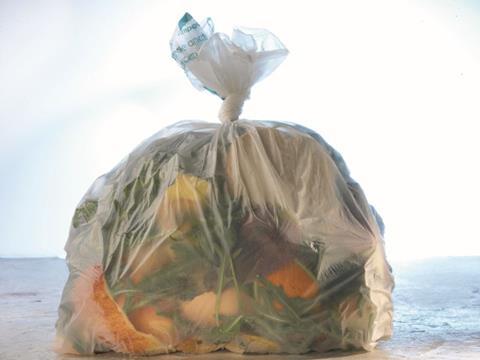
Eighteen months on from COP 21, the city of Paris is honouring its commitments by launching the first phase of the separate collection of food waste produced in Parisian households with the support of Novamont.
Under the sponsorship agreement signed by the French Capital and the Italian bioplastics company, a hundred or so workers are currently knocking at the doors of 74,161 families to provide them with the essential equipment for the easy, hygienic and correct collection of waste:
• An aerated caddy that can be kept under the kitchen sink
• 72 biodegradable and compostable bags made of MATER-BI for the collection of food waste
Last week, the Deputy Mayor Mao Peninou, together with the Mayors of the 2nd and 12th arrondissements Catherine Barrati-Elbazet and Jacques Boutault, representatives of ADEME, SYCTOM (responsible for urban waste management) and Novamont France, joined the operators' teams to meet the citizens on their doorsteps and explain to them the purpose and potential of the separate collection of food waste, a resource of enormous value that will no longer be disposed of in landfill or burnt in incineration plants. Instead it will be used to produce green energy (biogas) and good-quality humus (compost) with which to fertilise soil. This is in accordance with the logic of a circular economy, where nothing is waste but everything goes back to being a resource.
In the words of Deputy Mayor Mao Peninou, "We invite the people of Paris to get fully behind this environmental and social innovation that will make them the leading stakeholders in the production of biogas and compost."
According to Christophe de Doukhi Boissoudy, CEO of Novamont France, "In the circular economy, the recovery of resources takes place first and foremost by recycling the waste and reinserting it into the production cycle. The circular system par excellence, as evidenced by several use cases across Europe, is the one based on separate collection of the organic fraction - which in Paris accounts for about 1/4 of the total waste produced by every citizen. Its success depends on the use of biodegradable bags and carrier bags certified in accordance with the most important standards."
As in Milan, the collection kit, made up of aerated bins and a stock of biodegradable, compostable bags, is being provided by Novamont, a long-standing partner of a network of municipalities involved in the separate collection of organic waste, such as Milan, New York, Geneva, Vienna and San Francisco.
The strength of the Novamont model for food waste management lies in the use of bags made of MATER-BI, the bioplastic that is biodegradable and compostable in accordance with international standards. The bags are waterproof, hygienic, breathable and suitable for processing in anaerobic digestion and composting plants. In fact, the compostability of the bags is an essential feature ensuring the quality of the collection of organic waste and its transformation into high-quality biogas and compost.
A valuable contribution to the dissemination of the separate collection of food waste will also be provided by fruit/vegetable bags which, according to the energy transition law introduced by Ségolène Royal, since 1 January 2017 must be bio-based and certified biodegradable and now can be reused by households for the collection of wet waste. According to Paris Mayor Anne Hidalgo, "The circular economy shows us every day that changing attitudes and approaches to the issue of waste promises huge benefits for our country."
More info:















